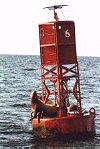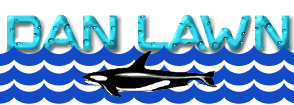 OIL GIANT BP TO SETTLE WASTE CASE
OIL GIANT BP TO SETTLE WASTE CASE
September 21, 1999
Steve Miletich , Seattle Timesr
British oil conglomerate BP-Amoco has reached a tentative settlement with
federal prosecutors to end a five-year criminal investigation into the
dumping of hazardous wastes down oil wells on Alaska's environmentally
sensitive North Slope, according to lawyers familiar with the case.
Barring a last-minute collapse, the agreement is expected to be filed in
U.S. District Court in Anchorage this week. U.S. Attorney General Janet
Reno could announce the deal as early as tomorrow.
Neither London-based BP nor the U.S. Justice Department would discuss the
settlement, but the deal could involve criminal or civil terms, with the
possibility of a deferred prosecution or a
multimillion dollar payment to settle the matter, the lawyers said.
BP, which produces and markets crude oil and petroleum products worldwide,
has portrayed itself as an environmentally conscious company. The criminal
investigation, however, has prompted environmentalists in Alaska to
question BP's conduct.
The settlement comes 16 months after a BP contractor, Doyon Drilling,
pleaded guilty to 15 misdemeanor counts of violating the
Oil Pollution Act of 1990 by illegally dumping hazardous wastes into oil
shafts on Alaska's Endicott Island.
The dumping of hundreds of 55-gallon barrels containing paint thinner,
paints, oil and solvents at the BP Exploration drilling site occurred near
Alaska's Beaufort Sea, home to birds and marine life.
Although BP maintains no environmental damage occurred, federal prosecutors
contend some of the material reached the
surface.
The investigation has been conducted by the Justice Department's
environmental-crimes division, the U.S. Attorney's Office in Anchorage, the
FBI and the Environmental Protection Agency's
criminal office in Seattle.
BP has previously denied that it knew of the dumping, saying the company
promptly reported the violations to government agencies shortly after they
were discovered in 1995.
The dumping, brought to light by a Doyon whistle-blower, occurred every two
weeks between 1993 and 1996.
The whistle-blower went to Doyon officials in 1995 to report the illegal
activity, telling them what materials had been dumped, the volume and his
attempts to stop the practice, according to the plea agreement with Doyon.
One Doyon official, who later pleaded guilty to negligently discharging
hazardous wastes, responded that the practice had been going on for years,
despite requirements that waste products
be shipped off the North Slope, prosecutors said.
Shipping wastes off the North Slope was expensive, costing BP $1,000 to
$1,500 to dispose of one barrel of used solvents, according to court
documents filed in the Doyon case.
In addition, it cost $450 to test a barrel of oil or solvents to determine
if it was hazardous or contaminated.
When Doyon took no action in response to the whistle-blower's complaint, he
went to BP in August 1995.
Doyon Drilling is owned by Doyon Ltd., a Fairbanks-based Alaska Native
corporation that had been a contractor for BP since the mid-1980s on
Endicott Island, a man-made island and the third-largest of Alaska's North
Slope oil fields.
A federal grand jury in Anchorage began hearing evidence on the dumping in
1995.
The proposed settlement would end the case for BP; still unclear is the
status of its employees who have been under investigation. Several have
hired criminal defense attorneys in Seattle.
Since the dumping was discovered, BP has adopted new policies regarding
record keeping, supervision of employees and
additional training on waste handling for contractors and employees to
avoid recurrences of the illegal activity.
BP has greatly expanded the past two years, acquiring Amoco for $62 billion
in 1998.
In June, BP-Amoco announced it was buying Atlantic Richfield (Arco) for
about $30 billion in a stock deal that would make it the world's
second-largest oil company. The merger remains subject to federal approval.
BP Amoco's purchase of Arco would give the company 70 percent of Alaska
North Slope Oil Production, 72 percent ownership of the trans-Alaska
pipeline and 80 percent of the available tanker capacity.
Related Links
Seattle Times-- The Seattle Times Website
BP-Amoco-- The BP-Amoco Website
Doyon-- Doyon Ltd's Website
Whistleblower-- Whistleblower's Website
|

